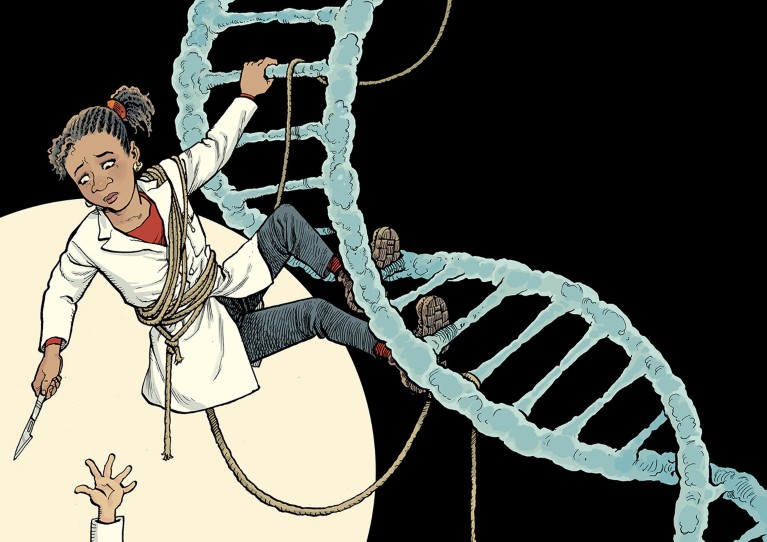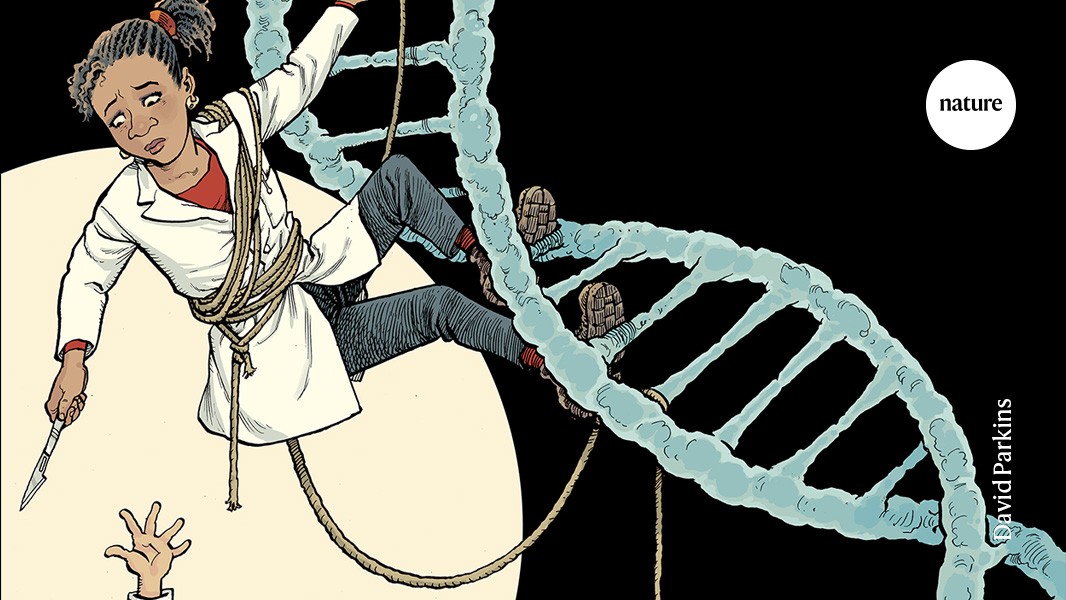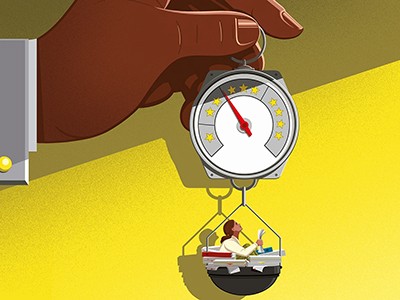
Illustration: David Parkins
The advice
Nature asked two careers advisers and a research-group leader to answer your questions. They all agree that letting go of a lab member who is unmotivated and not responding to your efforts to help is the best thing for everyone involved. However, they did have some advice on how you might prevent the situation arising again and ensure that you are doing all you can to support the student, even after they leave.
Harmit Malik, a geneticist at the Fred Hutch Cancer Center in Seattle, Washington, makes sure that his team members meet any prospective addition to the lab and can give their opinions on a candidate’s suitability and attitude. “It is our job to look past what they’ve achieved before — because it could be a function of privilege or something else — and really focus on motivation, their interest in the lab and their curiosity for science,” says Malik.
Malik adds that it can be hard to stay mindful of these factors as a new principal investigator. “The oppressive nature of an empty lab means that you’re dying to fill it with people,” he says. But, at this stage, it’s even more important to be vigilant: taking on someone who needs a lot of attention and monitoring will add unnecessary stress. “Hiring the wrong person is worse than hiring no person at all,” Malik says.
Making your expectations clear is the next step. Raquel Salinas, director of student affairs and career development at the MD Anderson Cancer Center in Houston, Texas, says that putting together a lab manual and asking any new lab members to read and sign it, as you did, works well. “This just outlines what your expectations are as a faculty member, and what the student should expect from you.” She says this should be explicit, achievable and in clear language. New team members must also feel able to discuss any aspects they are unsure about in an open, non-intimidating environment.
The human costs of the research-assessment culture
If a lab member isn’t fulfilling the responsibilities that they have agreed to, you need to consider all the potential reasons why. Ashley Ruba, based in Seattle, works as a careers consultant for PhD students. She says that some students who are struggling might be finding it hard to navigate what she terms the ‘hidden curriculum’ of an academic research career: the social and cultural norms and responsibilities, which might not be explicitly taught, such as building a professional network, developing a research compass and maintaining a healthy work–life balance.
Salinas says that supervisors have a responsibility to ask whether there are any external factors that might be influencing a student’s work, such as their mental or physical health. This can be a difficult topic to discuss, both for you and the student. “We might frame it as ‘Is there something I should know about that’s affecting your work?’ or ‘Can I help connect you with some resources that might help?’,” says Salinas. The student doesn’t have to share anything, and you shouldn’t expect them to, but asking shows that you recognize that problems arise and that you’re open to discussing them.
Ultimately, when a lab member fails to meet expectations, you need to have an open and honest discussion, which you did. However, simply asking someone “How can I help you to succeed?” places the onus on them and is unlikely to result in effective suggestions, says Salinas.
Malik says that having standardized paperwork can make these conversations easier, and ensure that both you and the student are clear about what the problem is and what you expect from each other going forwards. Having a written record of these discussions will also help further down the line when assessing how well the student has achieved the goals you agreed on.
For these discussions, Malik uses a sheet from the individualized development plan developed by Angela DePace, a systems biologist at Harvard Medical School in Boston, Massachusetts, and her colleagues1. This has sections covering accomplishments, research goals and professional and personal targets. Whenever anyone commits what Malik considers to be a serious breach of lab protocol, he works through it with them. “When issues come up, that form is our default option in terms of discussing what went wrong and what I would like the student to do, and then we both sign it,” he says.
If a student repeatedly fails to meet the expectations set, then you are entitled to ask them to leave the lab, Malik says. Having the humility to recognize that this situation isn’t necessarily any fault of your own is the best way to avoid feelings of guilt or failure. Salinas also suggests helping the student to find a lab that might be a better fit. “You can just acknowledge that ‘I don’t think I’m the right mentor match for you, but I want to help you transition on to a lab that might be a better scientific fit or a better working-style fit’,” she says.
Nevertheless, Salinas says that if you have to let someone go, it’s always a good idea to question the reasons why. “The faculty member, being new, is right to reflect on their practices,” she says. Ruba adds that if you do find yourself letting go of more people in the future, you should seek help, advice and feedback on your mentoring style.
Salinas says that mentoring should be “a two-way street”, and you should always be receptive to feedback from those you supervise. Everyone can improve, and it’s important to be self-critical in a constructive manner without being saddled with guilt. Ruba is more direct: “If it’s just one student, it might not be you,” she says. “But if it’s multiple students in your lab who are leaving, then it probably is you.”



